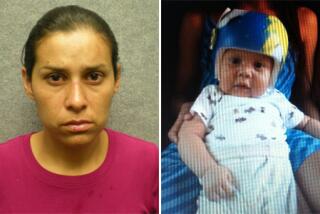The Unspeakable in Context
- Share via
Andrea Yates murdered her children. So said a Texas jury. That jury would now be morally right to vote against killing Yates.
Life imprisonment would be the harshest possible sentence for this woman, who, by all indications, cared deeply for her children before she slaughtered them. She has already attempted suicide. It is hard to imagine that a life in which she had to think about her actions would be anything less than a living hell.
Life imprisonment would not only be an appropriately punitive sentence, it would also be the responsible one. Executing Yates would imply that her crime had no context. In fact, her mental illness was inextricably entwined with her decision to hold her five children under water until they drowned.
The science of mental health is still young and incapable of objectively wrestling with questions of good and evil. Science, in short, cannot reveal the precise degree to which insanity should mitigate responsibility for criminal behavior.
There is, however, a growing realization by most scientists that the symptoms of mental illness can be dramatically reduced by giving patients the right drugs and making sure they take them. The only way to keep tuberculosis from rampaging through a community is for medical professionals to give medication to those with the infectious and potentially fatal disease and make sure they take it. Likewise, when severely mentally ill people stop taking their medications, when they don’t get the aggressive psychological help they need, their illnesses can worsen, to the detriment of those around them.
Society cannot prevent others from committing similar crimes unless it acknowledges that mental illness and criminal behavior do not emerge suddenly from a vacuum. Keeping Yates in prison for life would force her to confront her responsibility. And it would remind families, psychiatrists and others that they too have a responsibility.
More to Read
Sign up for Essential California
The most important California stories and recommendations in your inbox every morning.
You may occasionally receive promotional content from the Los Angeles Times.













